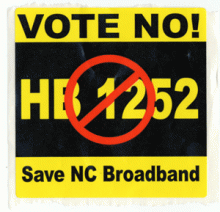Lafayette and a Level Playing Field
This is a great inside look at how one community built a globally competitive broadband network (probably the best citywide network in the US) and the barriers they faced from incumbent providers Cox and BellSouth.
Terry Huval, the Director of Lafayette Utilities System in Louisiana, spoke to the U.S. Senate Committee on Small Businesses Entrepreneurship on April 27, 2010, on the topic of: "Connecting Main Street to the World: Federal Efforts to Expand Small Business Internet Access." Huval's full testimony is available here.
Huval's presentation told the back story of LUS Fiber, focusing on the barriers to publicly owned networks in Louisiana.
The FCC National Broadband Plan, on page 153, includes Louisiana as one of 18 states that “have passed laws to restrict or explicitly prohibit municipalities from offering broadband services.” While the Louisiana law did not prohibit Lafayette from providing broadband services, its mere presence provided, and continues to provide, a fertile playground for BellSouth (and its successor AT&T), Cox and their allies to create mischief, resulting in discouraging local governments from stepping in to provide these services even when the private telecom companies refuse to do so.Louisiana, as with many other states including North Carolina, has powerful incumbents that claim there is an "unlevel playing field" and that local governments have too many advantages in building broadband networks (incomprehensibly, they simultaneously claim that local governments are incompetent and publicly owned networks always fail).



